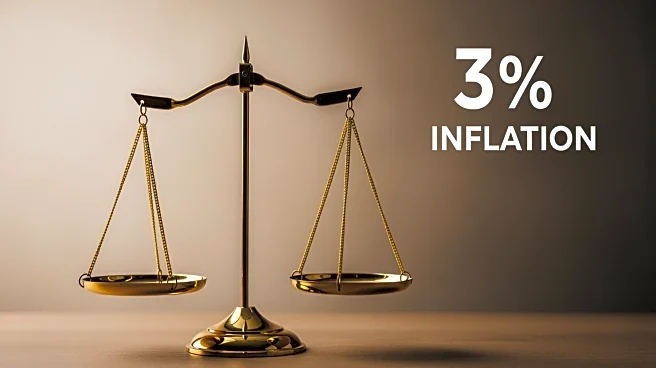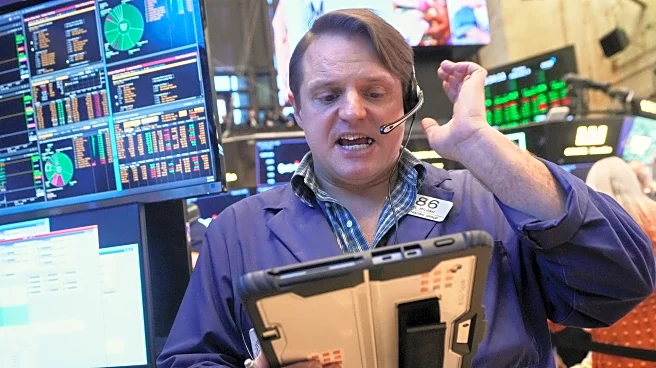What's Happening?
The Bureau of Labor Statistics has released its September consumer price index report, indicating a 3% increase in inflation compared to the previous year. This report marks the first major economic data
release since the recent government shutdown. The month-to-month inflation rate fell to 0.2%. NBC News' Brian Cheung and Investopedia editor-in-chief Caleb Silver provided analysis on these figures, highlighting the potential implications for the U.S. economy. The report comes amid ongoing concerns about the national debt, which has reached $29 trillion, and the sustainability of key social programs like Social Security and Medicare.
Why It's Important?
The increase in inflation is significant as it affects the purchasing power of consumers and can influence monetary policy decisions by the Federal Reserve. A 3% rise in inflation could lead to higher interest rates, impacting borrowing costs for individuals and businesses. This development is particularly crucial given the current economic climate, where the national debt is at an all-time high, and there are warnings about the potential risks to the economy if fiscal issues are not addressed. Stakeholders such as policymakers, businesses, and consumers will need to navigate these economic challenges carefully.
What's Next?
As the economy grapples with these inflationary pressures, the Federal Reserve may consider adjusting interest rates to manage inflation and support economic growth. Additionally, there could be increased political pressure to address the national debt and ensure the sustainability of social programs. Economic stakeholders will be closely monitoring upcoming economic reports and policy decisions to gauge the direction of the U.S. economy.











